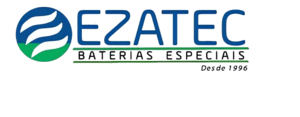No Blog Eletrônica de Potência você encontrará informações sobre teses,artigos,seminarios,congressos,tecnologias,cursos,sobre eletrônica potência. “TEMOS O DESTINO QUE MERECEMOS. O NOSSO DESTINO ESTA DE ACORDO COM OS NOSSOS MERITOS” ALBERT EINSTEIN. Imagination is more important than knowledge, for knowledge is limited while imagination embraces the entire world. EL FUTURO SE CONSTRUYE HOY,EL SUCESSO NO ES FRUTO DE LA CASUALIDAD,SE HUMILDE ,APRENDE SIEMPRE CADA DIA.
AUTOR DO BLOG ENG.ARMANDO CAVERO MIRANDA SÃO PAULO BRASIL

.gif)
“GRAÇAS A DEUS PELA VIDA,PELA MINHA FAMÍLIA,PELO TRABALHO.PELO PÃO DE CADA DIA,POR NOS PROTEGER DO MAL”
“SE SEUS PROJETOS FOREM PARA UM ANO,SEMEIE O GRÂO.SE FOREM PARA DEZ ANOS,PLANTE UMA ÁRVORE.SE FOREM PARA CEM ANOS,EDUQUE O POVO”


https://picasion.com/


segunda-feira, 29 de julho de 2019
Introduction to Aerospace SATELLITES KOREA AEROSPACE UNIVERSITY
quinta-feira, 25 de julho de 2019
VISITA A FIEE 2019 – FEIRA INTERNACIONAL DA INDÚSTRIA ELÉTRICA, ELETRÔNICA, ENERGIA E AUTOMAÇÃO-SÃO PAULO-BRASIL
COM PROF. ENG. HILTON MORENO DIRETOR DA REVISTA POTENCIA UMA REFERENCIA DA ENGENHARIA ELÉTRICA NO BRASIL.
COM MEUS CAROS AMIGOS PROF. ENG. GUSTAVO BRANCO (GRID POWER SOLUTIONS)
E SR. LUIS SALAS TORRES( EZATEC DISTRIBUIDOR EMPRESA KUNG LONG BATTERY)
COM MEUS CAROS AMIGOS E COLEGAS ENG. GUSTAVO BRANCO E ENG. GEAN
SEMINARIO FIEE
A FIEE, Feira Internacional da Indústria Elétrica, Eletrônica, Energia e Automação, agora em sua 30ª edição, é um evento que ajuda a promover a indústria elétrica, eletrônica, energia e automação, e o desenvolvimento de novas tecnologias e tendências do setor.
Realiza-se no maior centro de exposições na América Latina, em São Paulo, numa superfície assim dividida: 90.000 m2 de área de exposição + 10.000 m2 de Convention Center, de 23 a 26 julho 2019.
Os setores envolvidos na feira são: Automação: automação, nanotecnologia, robótica Eletrônica: Electronic Equipment, segurança eletrônica, telecomunicações, manufatura eletrônica (sistemas de montagem e subsistemas) Equipamento industrial: Equipamentos, máquinas e instalações industriais GTDC – Geração, Transmissão, Distribuição e Comercialização de Energia
sábado, 20 de julho de 2019
Electronic Circuits Doris Kim, Soongsil University
This is an introductory course on the basics of electronic circuits. The covered subjects are DC and AC circuits, diodes, semiconductors, and transistors. The students are required to become familiear with electronic circuits and their roles in modern experimental instruments. Since this is not an engineering course, theoretical or analytical details on electronic circuits will not be covered. Instead, basic concepts of circuit elements and practical methods on how to build electronic circuits will be emphasized.
quinta-feira, 18 de julho de 2019
Design for Reliability of Power Electronics for Grid-Connected Photovoltaic Systems Yongheng Yang, Ariya Sangwongwanich, Frede Blaabjerg
Design for Reliability of Power Electronics for Grid-Connected Photovoltaic Systems Yongheng Yang, Ariya Sangwongwanich, Frede Blaabjerg
Abstract—Power electronics is the enabling technology for optimizing energy harvesting from renewable systems like Photovoltaic (PV) and wind power systems, and also for interfacing grid-friendly energy systems. Advancements in the power semiconductor technology (e.g., wide band-gap devices) have pushed the conversion efficiency of power electronics to above 98%, where however the reliability of power electronics is becoming of high concern. Therefore, it is important to design for reliable power electronic systems to lower the risks of many failures during operation; otherwise will increase the cost for maintenance and reputation, thus affecting the cost of PV energy. Today’s PV power conversion applications require the power electronic systems with low failure rates during a service life of 20 years or even more. To achieve so, it is vital to know the main life-limiting factors of power electronic systems as well as to design for high reliability at an early stage. Knowhow of the loading in power electronics in harsh operating environments (e.g., fluctuating ambient temperature and solar irradiance) is important for life-time prediction, as the prerequisite of Design for Reliability (DfR). Hence, in this paper, the technological challenges in DfR of power electronics for grid-connected PV systems will be addressed, where how the power converters are stressed considering real-field mission profiles. Furthermore, the DfR technology will be systematically exemplified on practical power electronic systems (i.e., gridconnected PV systems). Index Terms—Reliability, design for reliability, power electronics, physics of failure, mission profiles, thermal loading, degradation, Monte Carlo method, photovoltaic systems.
LINK
https://vbn.aau.dk/ws/portalfiles/portal/250508960/Yongheng_Yang_CPSS_Transactions_on_Power_Electronics_and_Applications_CPSS_TPEA_vol.....pdf
terça-feira, 16 de julho de 2019
Oscilloscope measurements in power electronics: II. Differential probe - Prof. Sam Ben-Yaakov
Embedded Computing Design: Pre-Switch Demo in the Lab-Pre-Switch demonstrates their forced-switching AI power technology
This unrehearsed video shows Pre-Switch's James Hamond (CTO) and Derek Kroes (VP Engineering) demonstrating a 10KW full bridge solar inverter running Pre-Switch's AI forced-resonant soft-switching technology (Pre-Flex). Pre-Flex uses a learning AI to predict and generate a forced-resonance voltage waveform, timed accurately to enable zero voltage switching. The demonstration shows discrete IGBTs running at 50Khz at 98.5% efficiency, inverting 320Vdc to 240Vac. Able to work for both IGBT's and wide-bandgap devices, Pre-Flex enables switching losses to be reduced from 80% (IGBT), and 95% (wide-bandgap) enabling up to a 5X to 20X faster Fsw when compared to hard-switched legacy solutions.
LINK
https://www.pre-switch.com
segunda-feira, 15 de julho de 2019
Measuring the Plant Transfer Function of a Digitally Controlled Converter-Dr. Ali Shirsavar
domingo, 14 de julho de 2019
Managing Personal Communications & Presentation : Samsung Mobile Marketing-Yonsei University Sean Watts EIC professor Marketing-South Korea
Principles of International Marketing-PART2-Professor Sean Watts, Korea's Harvard- Yonsei University
Principles of International Marketing-PART1-Professor Sean Watts, Korea's Harvard- Yonsei University
Sean can be contacted at : https://www.facebook.com/wattssean
sábado, 13 de julho de 2019
A Study on the Transient Operation Algorithm of 30kW Micro-grid based on CVCF Inverter Hu Dong, Lee Department of Electronic and Electrical Engineering The Graduate School Korea University of Technology and Education
A Study on the Transient Operation Algorithm of 30kW Micro-grid based on CVCF Inverter Hu Dong, Lee Department of Electronic and Electrical Engineering The Graduate School Korea University of Technology and Education
ABSTRACT
The phenomenon of energy sinking can be occurred if the output of renewable energy sources is larger than customer loads. In this case, voltage of CVCF battery could be increased rapidly according to the condition of SOC(State of Charge) and blackout could be occurred due to shut-down of CVCF inverter, at carbon free island micro-grid based on the CVCF(Constant Voltage & Constant Frequency) inverter. In order to overcome these problems, this paper proposes a transient operation algorithm in CVCF based micro-grid which in advance prevents shut-down of CVCF inverter during the energy sinking. And also this paper proposes the modeling of 30kW micro-grid including CVCF inverter, PV system, customer load using PSCAD/EMTDC S/W and implements test device of 30kW micro-grid. From the results of 30kW micro-grid modeling and test device based on the proposed algorithm, it is confirmed that CVCF based micro-grid can properly prevent shut-down of CVCF inverter according to SOC and battery voltage of CVCF inverter when energy sinking is occurred.
Keyword : Carbon free island Micro-grid, CVCF inverter, Energy sinking, Transient operation
LINK:https://www.mediafire.com/file/aakhn6edjiqxuuq/A_Study_on_the_Transient_Operation_Algorithm_of_30kW_Micro-grid_based_on_CVCF_Inverter.pdf/file
UNIFIED POWER QUALITY CONDITIONER: DESIGN, SIMULATION AND EXPERIMENTAL ANALYSIS PhD THESIS-Ahmet TEKE DEPARTMENT OF ELECTRICAL AND ELECTRONICS ENGINEERING ÇUKUROVA UNIVERSITY
UNIFIED POWER QUALITY CONDITIONER: DESIGN, SIMULATION AND EXPERIMENTAL ANALYSIS PhD THESIS-Ahmet TEKE DEPARTMENT OF ELECTRICAL AND ELECTRONICS ENGINEERING ÇUKUROVA UNIVERSITY
ABSTRACT
Power quality (PQ) problem can be defined as the deviations of the voltage and/or current from the nominal sine wave. PQ problems generally concern with voltage sags/swells and harmonic currents. Custom Power (CP) devices that mitigate these power quality problems have gained more attention in the recent decades. Unified Power Quality Conditioner (UPQC) is one of the CP devices and it mitigates both load current and supply voltage problems, simultaneously. In this study, UPQC and a new topology of UPQC namely OPEN UPQC are designed, modeled and setup experimentally to mitigate voltage sag/swells and harmonic currents. UPQC consists of Dynamic Voltage Restorer (DVR) and Active Power Filter (APF). An improved voltage compensation controller and new sag/swell detection method based on Enhanced Phase Locked Loop (E-PLL) are presented for DVR. Traditional Instantaneous Reactive Power Theory (IRPT) is optimized for APF control algorithm to compensate harmonic load current under unbalanced and distorted supply voltages. Digital Signal Processor based 6 kVA, 230Vline-lineUPQC and OPEN UPQC prototypes have been developed for laboratory tests. UPQC and OPEN UPQC with proposed controller algorithms effectively compensates the sag/swell in supply voltage by keeping the load voltage amplitude at 0.9-1 per unit and eliminates the load current harmonics by keeping supply current at 5%
Key Words: Unified Power Quality Conditioner, OPEN UPQC, Custom Power, Active
Power Filter, Dynamic Voltage Restorer.
LINK: https://www.mediafire.com/file/wtcckymm7e4qn7i/8411-CONDICIONADOR_POTENCIA.pdf/file
sexta-feira, 12 de julho de 2019
PROJETO E CONSTRUÇÃO DE UM CONVERSOR MONOFÁSICO EM PONTE H MULTICELULAR ENTRELAÇADO PARA GERAÇÃO FOTOVOLTAICA E EÓLICA DE PEQUENO PORTE-GEOVANE LUCIANO DOS REIS-UNIVERSIDADE FEDERAL DE MINAS GERAIS
PROJETO E CONSTRUÇÃO DE UM CONVERSOR MONOFÁSICO EM PONTE H MULTICELULAR ENTRELAÇADO PARA GERAÇÃO FOTOVOLTAICA E EÓLICA DE PEQUENO PORTE-GEOVANE LUCIANO DOS REIS-UNIVERSIDADE FEDERAL DE MINAS GERAIS PROGRAMA DE PÓS-GRADUAÇÃO EM ENGENHARIA ELÉTRICA
Dissertação de Mestrado submetida à Banca Examinadora designada pelo Colegiado do Programa de Pós-Graduação em Engenharia Elétrica da Escola de Engenharia da Universidade Federal de Minas Gerais, como requisito para obtenção do Título de Mestre em Engenharia Elétrica
RESUMO
A demanda por energia elétrica tem aumentado nos últimos anos, além da busca por novas fontes de energia para atender esse crescimento de forma não poluente e sustentável. Assim, as energias renováveis como a fotovoltaica e a eólica, tem ganhado posição de destaque no cenário energético mundial. O proposito deste trabalho é apresentar o projeto, construção e comissionamento de um conversor monofásico híbrido em ponte H multicelular entrelaçado para geração fotovoltaica e eólica de pequeno porte, com potência nominal de 11,7 kW. O sistema é composto por: i) dois arranjos fotovoltaicos de 5,1 kW cada que tem sua potência rastreada através de dois conversores Boost entrelaçados; ii) uma turbina eólica com gerador de imã permanente com potência de 1,5 kW, cuja potência é extraída através de um terceiro conversor Boost. A interface entre a geração e a rede elétrica é realizada por um inversor VSI entrelaçado de quatro braços via um ICT. O trabalho de dissertação apresenta os principais conceitos da geração fotovoltaica e eólica, modelagem dos principais elementos do sistema e as técnicas utilizadas para o controle e rastreamento da máxima potência do sistema. Por fim os resultados simulados e experimentais para o sistema desenvolvido são apresentados e discutidos. Palavras-chave: Geração distribuída, conversor híbrido, MPPT, energia eólica, energia fotovoltaica.
LINK: https://www.ppgee.ufmg.br/defesas/1389M.PDF
quinta-feira, 11 de julho de 2019
BRAZILIAN POWER ELECTRONICS CONFERENCE 2013 Hotel Serra Azul - Gramado-RS-BRASIL
About COBEP
The main objectives of COBEP (Brazilian Power Electronics Conference) are to promote a forum to discuss research, development, applications, new trends, and latest advances in Power Electronics and Electrical Machine Control. The event is open for the whole community, but it mainly targets specialists in Power Electronics, Electrical Drives, and Machine Control. Researchers, engineers, businessmen, and engineering students are encouraged to participate in COBEP.
COBEP has technical co-sponsor from the IEEE (The Institute of Electrical and Electronics Engineers), through a cooperation agreement with PELS (Power Electronics Society), allowing its internationalization and increasing its divulgation. It is a bi-annual event that is organized every odd year by one or more Universities, Research Groups or Institutes from various regions of Brazil. COBEP 2013 is organized by the Federal University of Santa Maria (UFSM), and will take place in the touristic town in the southern Brazilian state of Rio Grande do Sul, Gramado, from 27 to 31 October 2013. Currently, COBEP is the national meeting of Brazilian researchers of Power Electronics and Applications. The organizers are expecting and welcoming increasing participation from the international scientific community, to further strengthen this consolidated forum of advanced technical discussions.
Assinar:
Comentários (Atom)























































